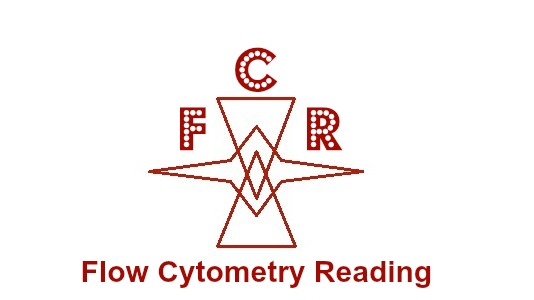Peer reviewed publications from food Microbial Sciences Unit in the last years
(Click and access further info for every article)
2024
Do high-protein diets have the potential to reduce gut barrier function in a sex-dependent manner?
Comparison of prebiotic candidates in ulcerative colitis using an in vitro fermentation model.
Self-assembly and antimicrobial activity of lipopeptides containing lysine-rich tripeptides.
Microbial species and strain heterogeneity affect resistance to high pressure processing.
Classifying compounds as prebiotics — scientific perspectives and recommendations.
2023
A review on the use of prebiotics in ulcerative colitis.
Gut microbial modulation by culinary herbs and spices.
Effects of food matrix on the prebiotic efficacy of inulin-type fructans: a randomised trial.
Impact of inorganic iron and haem on the human gut microbiota; an in vitro batch-culture approach.
2022
Gamma aminobutyric acid production by commercially available probiotic strains.
The potential role of human milk oligosaccharides in irritable bowel syndrome.
Hay vs. haylage: forage type influences the equine urinary metabonome and faecal microbiota.
Commentary on: prebiotic effects: metabolic and health benefits.
Food for thought! Inulin-type fructans: does the food matrix matter?.
Profiling gut microbiota and bile acid metabolism in critically ill children.
2021
Hepcidin-mediated hypoferremia disrupts immune responses to vaccination and infection.
The effect of probiotics on cognitive function across the human lifespan: a systematic review.
Malnutrition and gut microbiota in children.
Sulfation of arabinogalactan proteins confers privileged nutrient status to Bacteroides plebeius.
Mechanisms linking the human gut microbiome to prophylactic and treatment strategies for COVID-19.
Molecular characterization of piezotolerant and stress resistant mutants of Staphylococcus aureus.
Assessment of stool collection and storage conditions for in vitro human gut model studies.
2020
2019
Sexual dimorphism in immune development and in response to nutritional intervention in neonatal piglets.
Wood-derived dietary fibers promote beneficial human gut microbiota.
Probiotics and prebiotics in intestinal health and disease: from biology to the clinic.
Adhesion mechanisms mediated by probiotics and prebiotics and their potential impact on human health.
Modelling the role of microbial p-cresol in colorectal genotoxicity.
The role of the gut microbiota in colorectal cancer causation.
Restructuring of lipid membranes by an arginine-capped peptide bolaamphiphile.
2018
Gut microbiota functions: metabolism of nutrients and other food components.
Metabolic retroconversion of trimethylamine N-oxide and the gut microbiota.
In vitro fermentation of gum acacia – impact on the faecal microbiota.
The gut microbiota and cardiovascular health benefits: a focus on wholegrain oats.
Recent developments in nutrimetabolomics: from food characterisation to disease prevention.
2017
In vitro evaluation of prebiotic properties derived from rice bran obtained by debranning technology.
In vitro fermentation of B-GOS: impact on faecal bacterial populations and metabolic activity in autistic and non-autistic children.
Metabolic adaptation of colonic microbiota to galactooligosaccharides: a proof-of-concept-study.
Gut microbiota functions: metabolism of nutrients and other food components.
Metabonomics-based analysis of Brachyspira pilosicoli’s response to tiamulin reveals metabolic activity despite significant growth inhibition.
Inulin prebiotic: is it all about bifidobacteria?
Early intervention with Bifidobacterium lactis NCC2818 modulates the host-microbe interface independent of the sustained changes induced by the neonatal environment.
A novel approach in acidic disinfection through inhibition of acid resistance mechanisms; Maleic acid-mediated inhibition of glutamate decarboxylase activity enhances acid sensitivity of Listeria monocytogenes.
Ultrasound processing of liquid system(s) and its antimicrobial mechanism of action.
Hybrid membrane biomaterials from self-assembly in polysaccharide and peptide amphiphile mixtures: controllable structural and mechanical properties and antimicrobial activity.
Colonisation of poultry by Salmonella Enteritidis S1400 is reduced by combined administration of Lactobacillus salivarius 59 and Enterococcus faecium PXN-33.
Bowel on a Bench: an in-vitro fermentation model of the equine hindgut microbiota.
2016
In vitro fermentation of juçara pulp (Euterpe edulis) by human colonic microbiota.
Prebiotic potential of a maize-based soluble fibre and impact of dose on the human gut microbiota.
Stress adaptation of Listeria monocytogenes in acidic ready-to-eat products.
NMR-based metabolic characterization of chicken tissues and biofluids: a model for avian research.
Metabolomics of fecal samples: a practical consideration.
The gut microbiota: a major player in the toxicity of environmental pollutants?
The inositol-3-phosphate synthase biosynthetic enzyme has distinct catalytic and metabolic roles.
Comparative genomics of European Avian Pathogenic E. coli (APEC).
2015
Bacillus coagulans GBI-30, 6086 modulates Faecalibacterium prausnitzii in older men and women.
Comparative analysis of intestinal tract models.
Prebiotics modulate the effects of antibiotics on gut microbial diversity and functioning in vitro.
Bioactive natural products: facts, applications, and challenges.
Brachyspira pilosicoli-induced avian intestinal spirochaetosis.
New insights into the impact of Lactobacillus population on host-bacteria metabolic interplay.
Foodomics for personalized nutrition: how far are we?
2014
Characterization of virus-like particles associated with the human faecal and caecal microbiota.
Effect of breadmaking process on In Vitro gut microbiota parameters in irritable bowel syndrome.
The short-chain fatty acid acetate reduces appetite via a central homeostatic mechanism.
Probiotics and prebiotics: prospects for public health and nutritional recommendations.
The effect of proteolysis on the induction of cell death by monomeric alpha-lactalbumin.
Impact of dietary polydextrose fiber on the human gut metabolome.
Prostate cancer: important steps and considerations in the design of therapeutic vaccines.
Mammalian-microbial cometabolism of L-Carnitine in the context of atherosclerosis.
Development of personalised functional foods needs metabolic profiling.
Nutrimetabonomics: nutritional applications of metabolic profiling.
SPI-23 of S.Derby: role in adherence and invasion of porcine tissues.
Brachyspira and its role in avian intestinal spirochaetosis.
Metaproteomics analysis reveals the adaptation process for the chicken gut microbiota.
2013
A pig’s microbiota – a result of many factors.
Comparative in vitro inhibition of urinary tract pathogens by single- and multi-strain probiotics.
New insights into probiotic mechanisms: a harvest from functional and metagenomic studies.
Probiotics, prebiotics, and the host microbiome: the science of translation.
The effect of processing on chlorogenic acid content of commercially available coffee.
Selection of potential probiotic lactic acid bacteria from fermented olives by in vitro tests.
Gut bacteria-host metabolic interplay during conventionalisation of the mouse germfree colon.
Fighting undernutrition: don’t forget the bugs.
Metabolic phenotype modulation by caloric restriction in a lifelong dog study.
Efficacy of a live attenuated Escherichia coli O78:K80 vaccine in chickens and turkeys.
